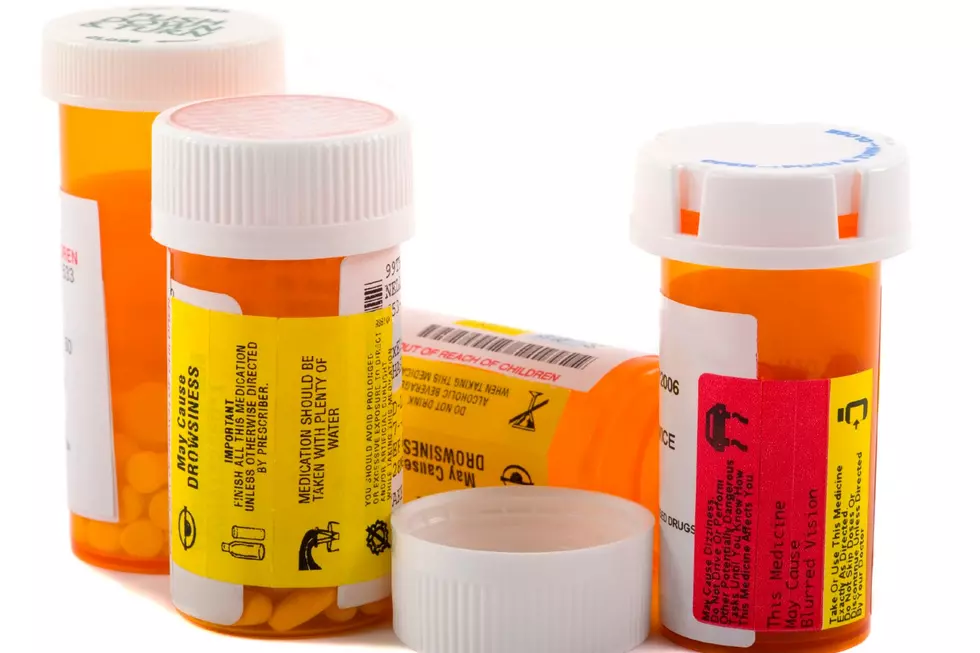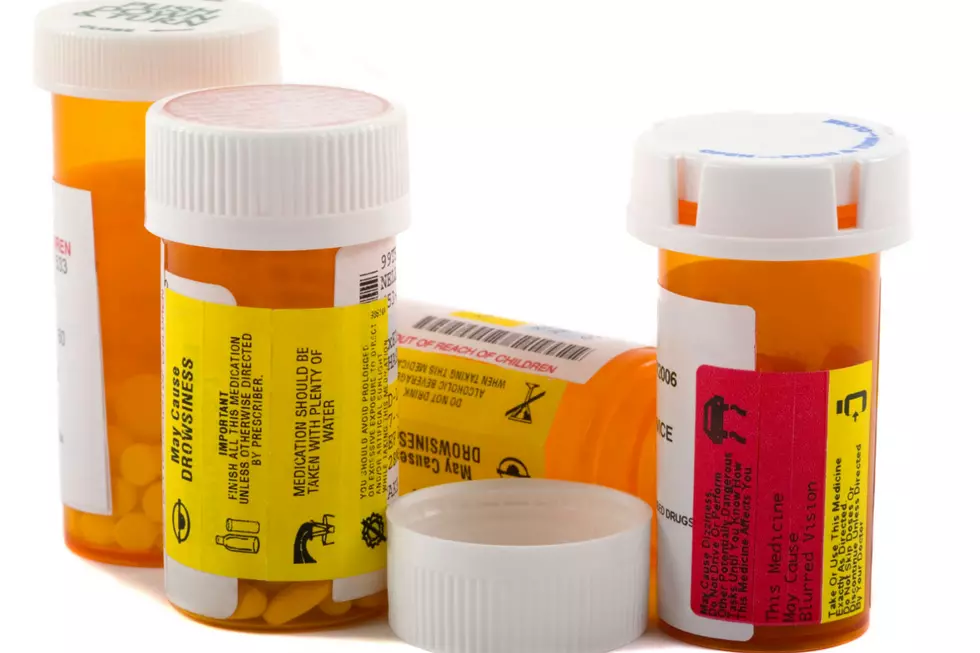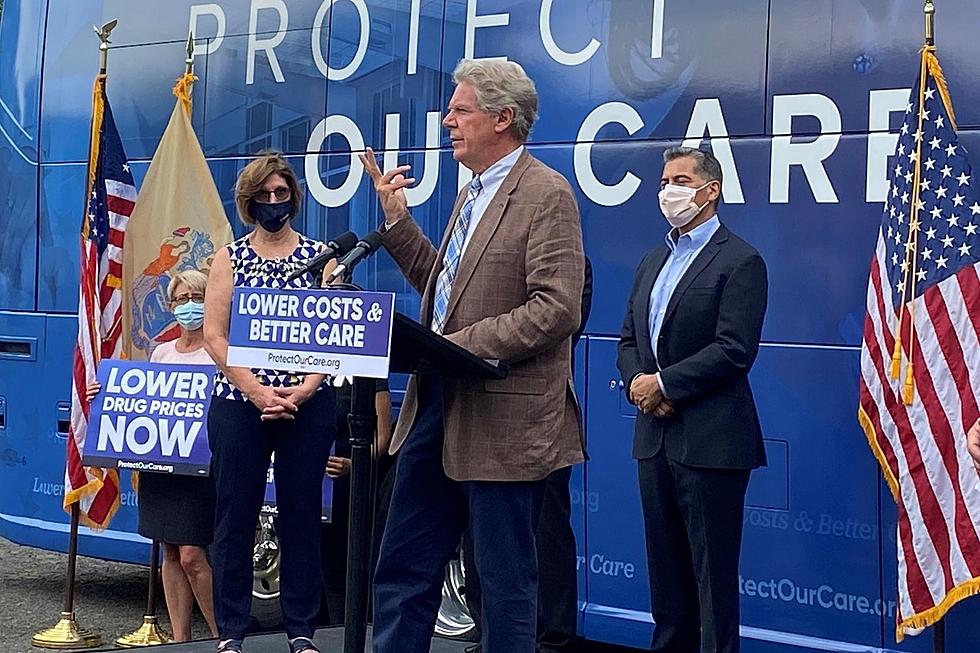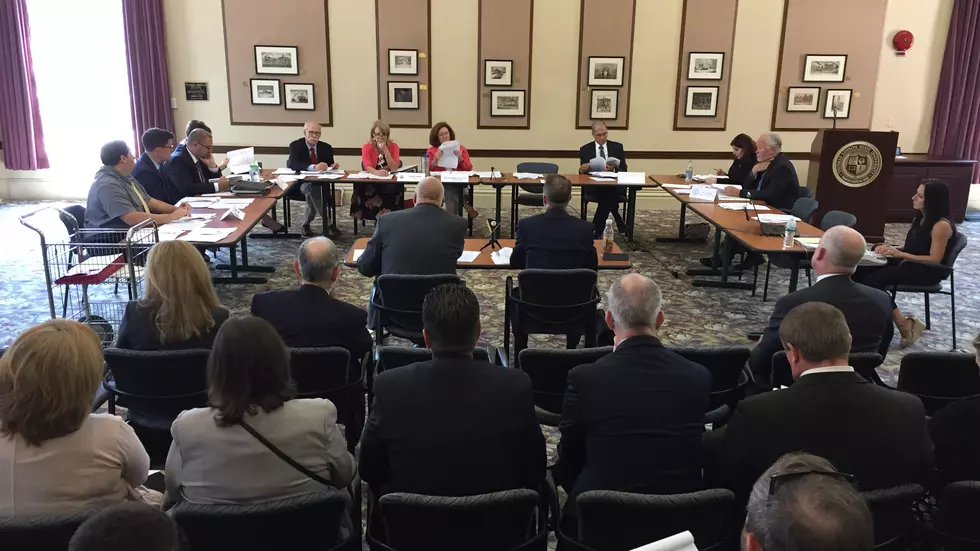![Pot or Prescription Painkillers – Which is the Bigger Gateway Drug? [POLL]](http://townsquare.media/site/385/files/2013/09/Painkillers-300x200.jpg?w=980&q=75)
Pot or Prescription Painkillers – Which is the Bigger Gateway Drug? [POLL]
Legalizing marijuana for recreational use has always seemed to make sense to me, simply because it’s being illegal now feeds the drug cartels that control its market here in the United States.
However according to some, we run the risk of creating a generation of drug addicts once it becomes legal; although I'm certainly not one of them.
That was the subject of a letter Assemblywoman Mary Pat Angelini of Monmouth County recently sent to the News Transcript newspaper.
It seems obvious that more people will use a substance deemed legal and presumably safe by the government than they will use an illegal and presumably dangerous one. This logical conclusion has serious consequences for young people.
The National Survey on Drug Use and Health released a study earlier this year that proved that the less dangerous young people considered a particular substance, the more they used it.
From 2007-11, the percentage of adolescents who perceived great risk from smoking marijuana once or twice a week decreased from 54.6 percent to 44.8 percent. At the same time, young people who smoked marijuana in a given month increased from 6.7 percent to 7.9 percent.
Those numbers reflect a time when policy makers in New Jersey and several other states were debating medical marijuana.As some continue to push for legalizing marijuana regardless of medicinal circumstance, young people will continue to think it is safe. The numbers of young users in New Jersey will shoot through the roof if New Jersey ever sanctions the use of an illicit and dangerous drug.
This is sending the wrong message to young people. Marijuana is an addictive drug that often leads users to use other illegal drugs and down a path toward a number of medical and social problems.
Teen users have an increased risk of schizophrenia, depression and suicidal thoughts. They are also more likely to engage in delinquent and dangerous behavior.
This finding flies in the face of an article that appeared in the Courier Post over the weekend focusing on the use of prescription painkillers leading to heroin and the like.
Heroin use and arrests in Camden have steadily increased over the past five years, a trend (Police Chief) Thomson — like many in law enforcement — contends is “precipitated by the pandemic of opioid prescription drug abuse of the most popular pills OxyContin, Vicodin, Percodan and Percocet.”
He explained many addicts seek stronger drugs like heroin after their body develops a tolerance to pain pills.
“But even heroin, after a while, loses its euphoric effect,” according to Thomson. “The addict needs the drug not for a ‘high,’ rather to keep from getting ‘sick,’ most commonly referred to as the ‘Dope Flu.’
Gloucester City Police Chief George Berglund said, “It’s not hitting just people who are poor on the socioeconomic scale; it’s crossing every boundary.”
Berglund’s department has been making more heroin-related arrests than in prior years and many of those being charged are from the suburbs.
“I actually talk to people when we arrest them on heroin and ask them what gets them started,” he said. “They all say pills.”
This is backed up by a series of articles you can find here.
In short, pills are easily attained either through prescription, or by teens simply raiding the medicine chest should their parents use them.
Would legalizing pot necessarily lead to an increase in more drug addiction among teens?
As far as I can tell, despite how “difficult” it may be to purchase marijuana, (which as we all know is a fallacy), the number of addicts on heavier drugs may not have been introduced to them via pot; but rather by the aforementioned legal opioids, and perhaps even by liquor.
Further, as far as marijuana use is concerned,
Three comedians with ties to New Jersey landed in the top 10 on a list of the the 50 most influential marijuana users published by a group pushing Congress to legalize pot.
Two women who grew up in the Garden State and graduated from local high schools also were recognized by the Marijuana Policy Project. So were a trio of U.S. presidents.
President Obama, Oprah Winfrey and former president Bill Clinton were named the top three most influential marijuana users. Former President George W. Bush checked in at 12th.
The New Jerseyans include fifth-ranked Stephen Colbert, No. 6 Jon Stewart, No. 10 Bill Maher, 29th-ranked Martha Stewart and No. 33 Susan Sarandon.
Some may say policy crafted by the above politicians would definitely have been the result of continued marijuana use.
But did it lead them down the path of perdition?
And if they are not good examples, do you feel there are others who can claim that pot isn’t nearly as dangerous as legal opioids.
More From New Jersey 101.5 FM









